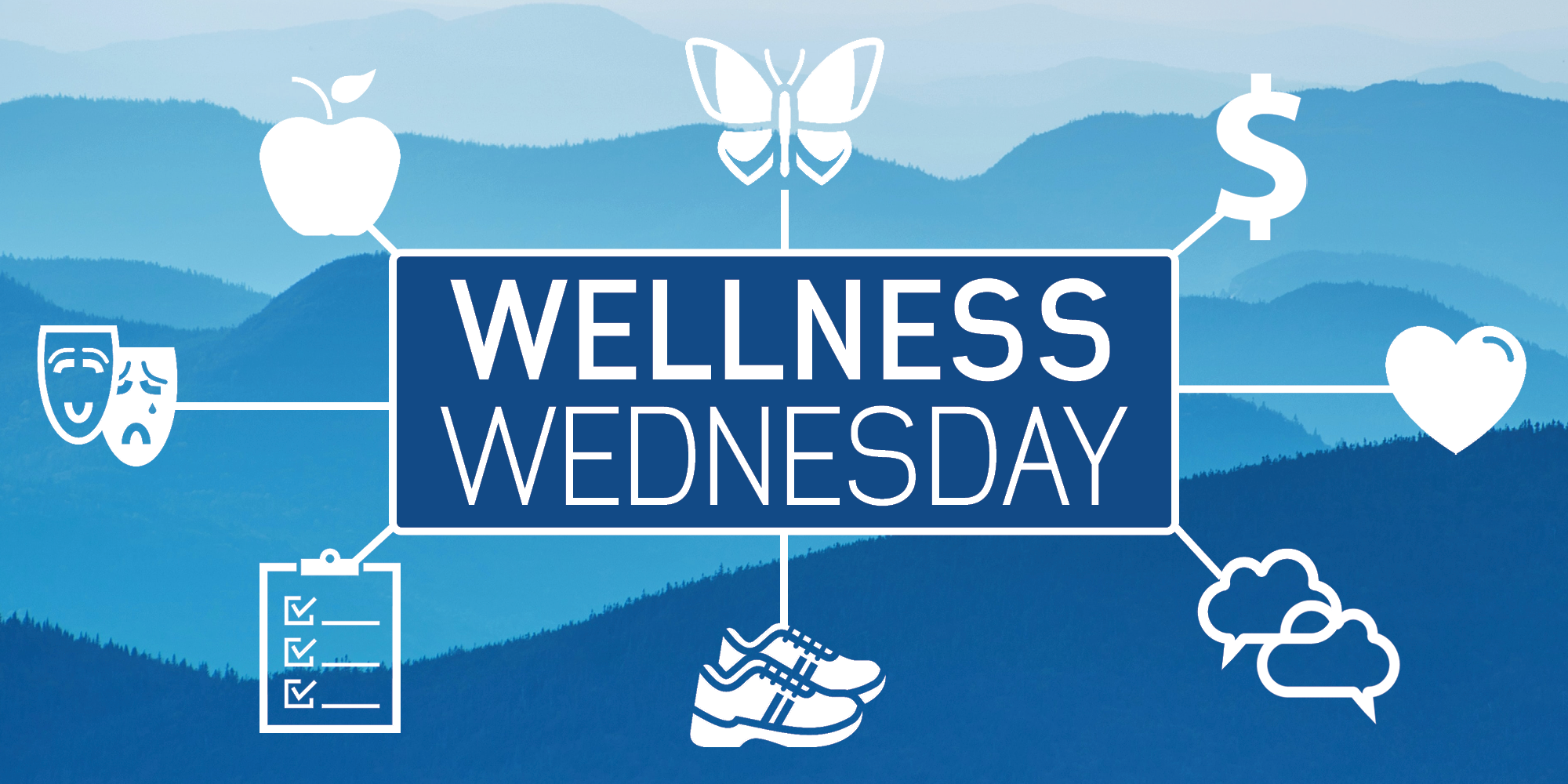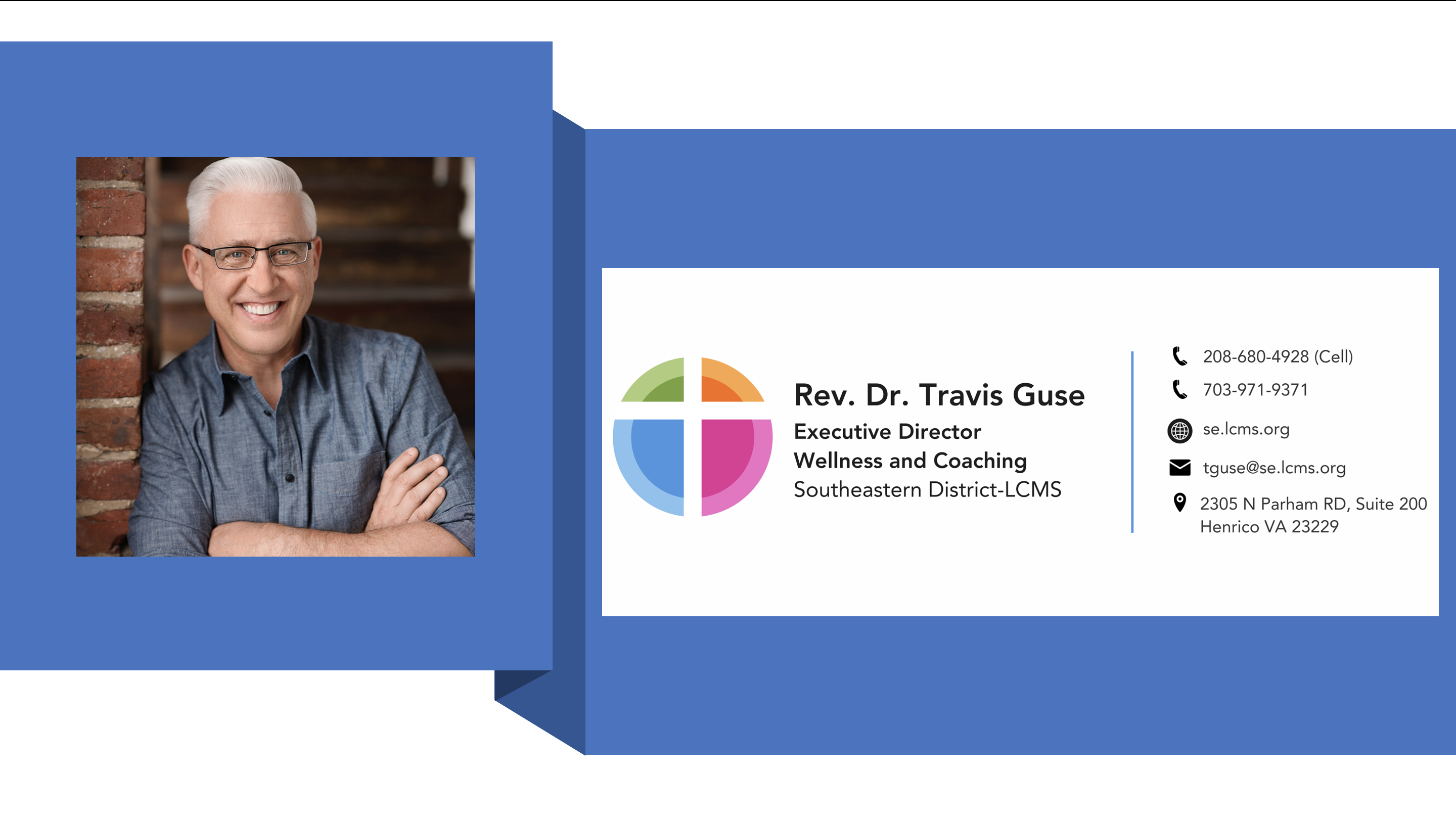
Wellness Wednesday – “Addressing The Disease Of Dis-Ease”
In this latest edition of Wellness Wednesday, we continue our examination of the PERMA-V model as we consider its insights for improving our wellness and well-being in life. This week, we again look at the “A” in this model, which stands for “Achievement.” As we explored in our last blog, achievement contributes to our sense of purpose and meaning in life. When we accomplish a goal or task, we feel a sense of joy and pride. These are good things we can celebrate and enjoy, part of the blessings we receive from God as we live out our vocations of love and service to others.
However, there is a temptation we all experience, even for those in full-time ministry, when we begin to look to our achievements as the antidote to the disease of dis-ease we all struggle with in our lives. You know that feeling of dis-ease, that you haven’t done enough, that you haven’t accomplished enough, that you haven’t worked hard enough. And very slowly, often without even realizing it, we begin to locate our meaning, purpose, and identity in the things we do, our achievements, and our callings in life rather than in Christ alone.
While our vocations and the accomplishments that flow from them are God-pleasing means of service through which we experience a sense of purpose in life and through which Jesus works through these callings in His care for the world, it is easy for us to look to what we do as the source of our ultimate sense of identity rather than to the One who called us. If we look to our vocational success as the source of our identity, the danger is either we become prideful when we succeed or defeated if we fail. If we look to the opinions of others for our identity as we serve in our vocations, the danger is, like a balloon, that we feel inflated about ourselves when praise comes our way and deflated when negativity is hurled at us. And what if we have to step away from our vocation of full-time ministry for a time or we retire? Who are we when we are no longer called to the work that once defined us?
Since the Fall, we have all suffered from identity theft when we exchanged our originally created identity as the Children of God for a lie. Ever since, we as humanity have sought to find our identity in everything else, from what we possess to how much we have to our jobs to how others perceive us, etc. In the face of this temptation, many of us in full-time ministry struggle with finding our identity in being relevant, as Satan tempted Jesus to do in the wilderness.
This temptation to find our identity elsewhere is that, like the woman at the well, we all have been trying to satisfy our soul thirst with those things outside of us in life. This thirst is a symptom of a drive we have in life, or the disease of “dis-ease” as Ronald Rolheiser describes in his book “The Holy Longing”. Only Jesus can satisfy the cravings of our soul so that this spiritual thirst is quenched by the Living Water in whom we find a trustworthy and enduring sense of our meaning, purpose, and identity in this life.
So, how do we begin to address this disease of dis-ease? We start by slowing down and reflecting on the true condition of our soul, or else we won’t even recognize it. Timothy Keller, in his book “Encounters With Jesus,” speaks of this sense that something is wrong deep within our soul when he writes, “You actually do know deep down that something is really wrong with you. Why are you working so hard? Why do you need to be right all the time? Why do you worry so much about how you look? It’s because you know there is something wrong, and you’re trying to purify yourself, prove yourself, cover it up.”
As Keller goes on to state, it is that we all are trying to prove we are not a bum. It’s the sense that we feel naked, which goes back to the garden when Adam and Eve sowed fig leaves to cover up their souls’ nakedness before God. My encouragement to you today is that you are not alone, even as someone in full-time ministry, with these feelings because it is a condition we all struggle with as humans. Being in professional ministry does not make any of us immune.
We all need something more foundational than our accomplishments, being relevant, the opinions of others, or even our vocation in full-time ministry to inform us of our authentic identity. God wants us to slow down enough to know that our primary cues come from him. Our ultimate sense of identity is found in Jesus, who calls us to His service. Our sense of purpose and success must come from our identity as in Christ alone, not our achievements and accomplishments in life. It is critical for all of us in full-time ministry to discover who we are in Christ, for that identity can never be shaken or taken from us, no matter the successes or failures we experience in ministry. As Keller explains, when we see ourselves in Jesus, “Our self-image rests in a love we can’t lose.”
As such, our authentic personal identity as a full-time church worker begins and ends with Jesus’ call of grace upon our lives. We hear from Paul in Ephesians 2:8-9, “For by grace you have been saved through faith. And this is not your own doing; it is the gift of God, not a result of works, so that no one may boast.” Our calling in Christ is, first and foremost, a call of undeserved love that saves us through the faith created in this promise made and fulfilled by Jesus. By grace, God restores our broken relationship with Him through Jesus’ death and resurrection. It is now by this saving work, not our own, that we are born into a new reality through the waters of Baptism, “So in Christ Jesus you are all children of God through faith, for all of you who were baptized into Christ have clothed yourselves with Christ.” (Galatians 3:26-27) Through God’s saving grace freely given in our Baptism comes a restored identity of who we are in Christ that was always intended to be ours since before the Fall; we are now children of God!
This identity does not come and go with our own sense of who we are or what we achieve; it is an identity freely bestowed upon us because of who Jesus is and what He has achieved on our behalf. Therefore, if anyone is in Christ (that’s you!), they are a new creation; the old has gone, the new has come! (2 Corinthians 5:17-21) May Jesus powerfully remind us every morning of our need to remember who we are in Him by grace through faith in that baptismal identity. So, as we daily remember these baptismal promises, may we remember each day that we are children of God, not because of what we do but because of what He has done by His life, His death, and His resurrection to new life. This is the only antidote I know to the disease of dis-ease we all struggle with in life.
